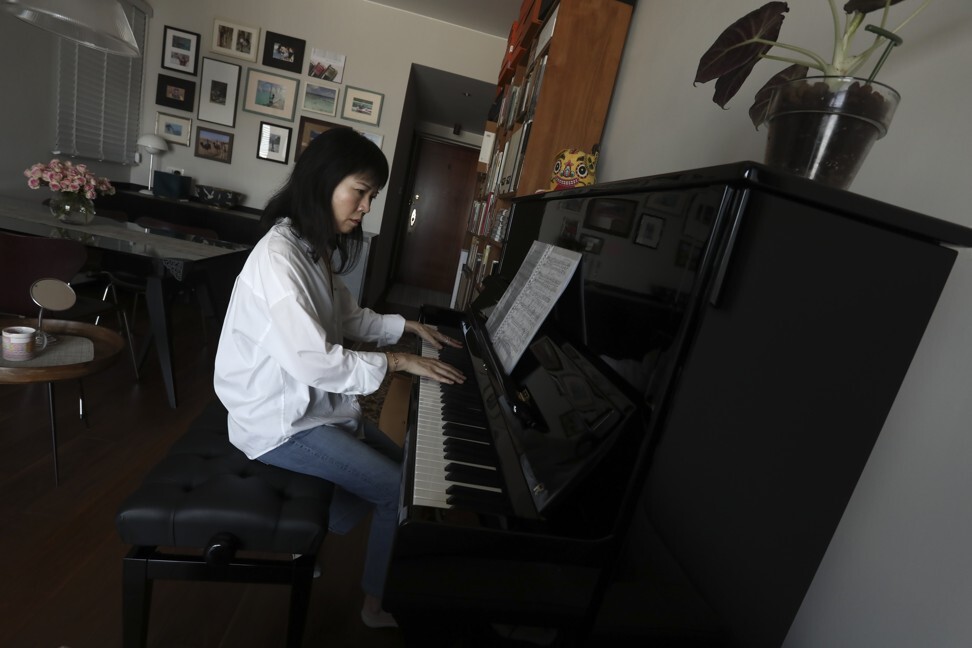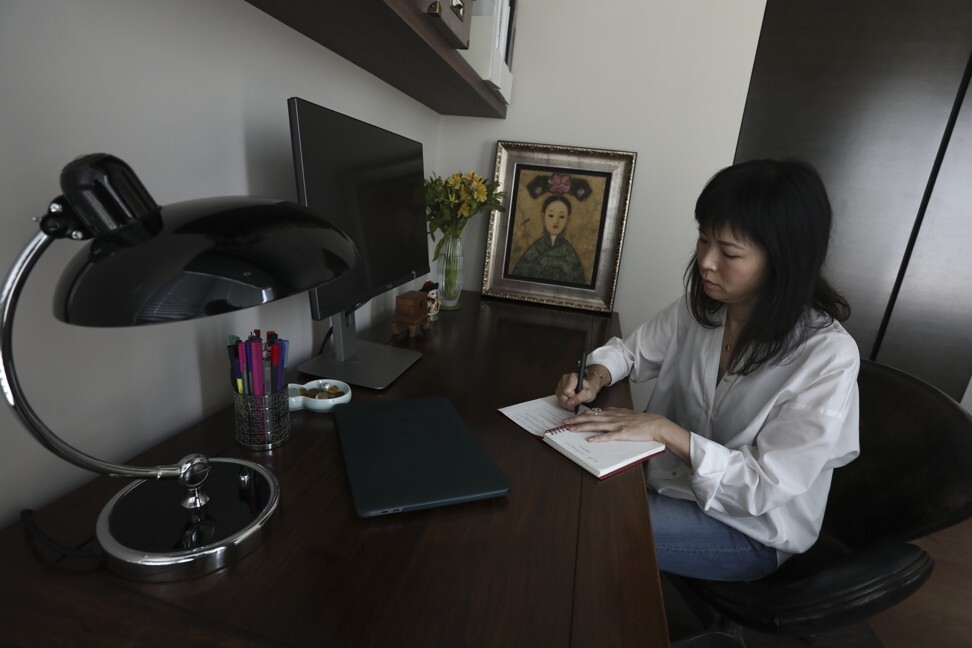
In 2011, Vivian Cheng was diagnosed with depression after the collapse of a long-term relationship. Since then, she has been regularly seeing both a psychologist and a psychiatrist, and taking antidepressant medication.
The Hongkonger, who is in her 40s, also joined a support group for people with depression and says that their meetings have been instrumental in her recovery.
“I learnt a lot about this complex and misunderstood condition, including the fact that it’s a mental illness and that it’s normal,” she says. “Being in that healing, non-judgmental space also taught me how others deal with their symptoms. Knowing that there are others like me reassures me that I’m not alone in this struggle.”
Following a routine has also helped Cheng manage her emotional well-being. She says that making certain activities central to her daily life keeps her feeling grounded and more positive about her future.

“I swim three times a week, spend time with my dog every afternoon, do volunteer work every Wednesday, and write about mental illness every week in my blog on LinkedIn. Previously, my routine also included yoga, daily journaling and weekly psychotherapy sessions.
“It takes discipline to stick to a routine – I found it especially tough when I was severely depressed and didn’t feel like doing anything – but it’s worth the effort because I’m doing so much better now.”
When someone has a mental health disorder such as depression, having a daily routine can go a long way towards helping them recover.
The history of mental health and how treatment has evolved
“Depression and other mental health conditions can turn our world upside-down, making us feel lost, sad, scared and confused,” says Minal Mahtani, a cognitive behaviour therapist and founder and chief executive of OCD & Anxiety Support HK, a Hong Kong-based charity dedicated to supporting and counselling people with mental health disorders. “Developing a daily routine gives us purpose and a sense of being in control. It reminds us that we have a reason to go on.
“No matter what’s happening in our life, knowing that we’ll be, say, going for a walk at 9am, having lunch at 1pm and going to bed at 9pm can be a real comfort.
“Routine can assist us when things get unpredictable because it helps us feel anchored, reduces stress and helps us deal with change. When we have a routine, we also prioritise self-care, such as eating or sleeping on time, exercising or relaxing, which we tend to ignore when life gets challenging.”


A useful routine may comprise four or five activities or tasks that you’d like to accomplish that day. These might include sleeping and waking up at the same time, being out in nature for 20 minutes, eating three square meals, or writing in a gratitude journal. Mahtani helps her clients set such goals and encourages them to see at least half of them through at first. Over time, they may increase the number of goals to be accomplished.
“When you’re depressed, even getting up to shower can feel insurmountable, and you may feel worthless or hopeless as a result,” Mahtani says. “If you can achieve the goals you’ve set for yourself that day, it’s a huge confidence booster.”
Having a daily routine won’t do much for you if you don’t consider how the activities or tasks are helping you or ask yourself what’s driving you to accomplish them.
“Choose activities that add meaning to your life, promote interpersonal connection and have the potential to bring about pleasant experiences,” says Dr Shawn Ee, a clinical psychologist and founder of The Psychology Practice in Singapore.
“That way, you’ll feel more motivated to do them, and when you’re engaging in those activities you’ll feel more connected to them. The greater the sense of connection, the more meaningful the activity will feel and the more pleasure you’ll derive from it. This can really help shift your emotional state.”
What you shouldn’t do is use these activities as an emotional escape. So for instance, if exercise is part of your routine, it should be because it makes you feel healthy and strong and allows you to spend time with friends, and not because it helps you avoid dealing with negative feelings.


“You can’t exercise your way out of depression,” Ee says. “Furthermore, if you suffer from chronic depression stemming from your childhood or adolescence, it might help to incorporate psychotherapy into your routine.
“General routines are beneficial, but someone with long-term depression might need to go a little deeper to resolve their issues.”
How do you avoid feeling like you’ve lost control when something unexpected happens and your routine – something that brings structure and stability to your life – gets thrown off course?
Crises and disruptions are normal and if they’ve caused you to neglect your goals you shouldn’t beat yourself up over it. Mahtani advises acknowledging that you’ve gone off course and to restart your routine as soon as you can.

Even if you only manage to check off half of your daily goals, you should still see that as an accomplishment. If you need extra encouragement and motivation to get your routine back on track, Mahtani suggests reaching out to your loved ones for help.
The Covid-19 pandemic was disruptive for just about everyone, taking away activities that had brought a sense of normality, regularity and meaning to our lives and leaving us feeling vulnerable and powerless. It also plunged many depression sufferers deeper into despair.
One study, published this March in the journal Translational Psychiatry, found that disruptions to daily routines during the pandemic were related to increased odds of anxiety and depression among Hongkongers, particularly those of a lower socioeconomic status and who were unemployed and didn’t have savings.

Luckily for Cheng, however, the lockdowns and other restrictions haven’t really affected her emotional well-being or upset her routine too much. She says that finding meaning and purpose in her daily activities has helped her maintain a sense of calm amid the unfolding global health crisis.
“My years of battling severe depression have made me stronger and more resilient, so when the pandemic hit, I told myself that if the journey ahead was uncomfortable I would get through it, and that any disruptions to my daily routine would pass,” she explains.
“Now, I just do the best I can to accomplish the tasks and activities I set for myself every day. This gives me peace of mind in a time of uncertainty and unpredictability.”







